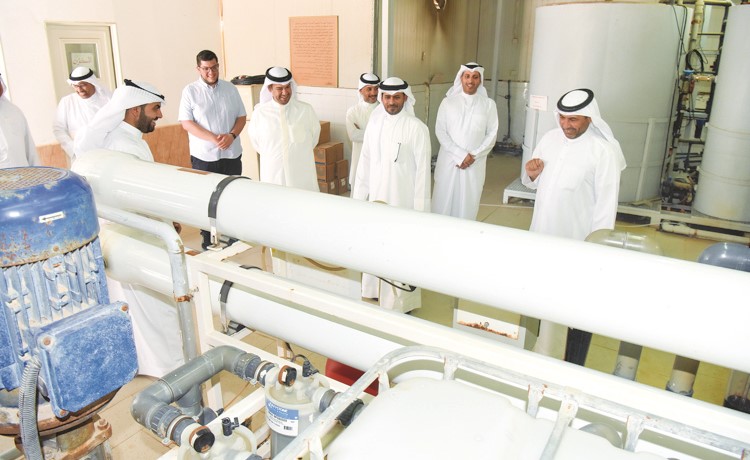25/06/2024
25/06/2024

KUWAIT CITY, June 25: Sheikh Sabah Badr Sabah Al-Salem, the Governor of Mubarak Al-Kabeer, conducted a visit to the waste landfill site in the Al-Adan area, accompanied by representatives from the Kuwait Municipality. The purpose of the visit was to oversee the ongoing work and explore viable solutions for rehabilitating the landfill.
Before the field tour, Chief Mechanical Engineer Muhammad Al-Dawas provided the governor with an overview of the landfill's history and current issues. Al-Dawas explained that the problem dates back to 1999, with the accumulation of waste and gas emissions due to companies disposing of their waste at the site. He noted that the waste primarily consists of decomposed organic material.
Al-Dawas elaborated that a station was established to address the issue by incinerating the waste. However, complete remediation is projected to take 30 to 40 years. He emphasized the urgency of addressing the problem without delay, citing an environmental study conducted by the municipality in 2019. This study recommended closing the site and estimated the cost at 27 million dinars, a proposal rejected by the Finance Ministry.
Following Al-Dawas's briefing, Governor Sheikh Sabah Badr Al-Salem urged the municipality to submit any approaches, suggestions, or studies to facilitate rehabilitation. He assured them of cooperation between the Ministry of Works and the Minister of State for Municipal Affairs, stating, "We came to help and support you." The governor also mentioned that the Minister has requested updates on stalled and completed projects within the governorates and is awaiting their suggestions.
Sheikh Sabah Badr Al-Salem committed to sending a detailed report to the Minister, including studies, suggestions, and potential future uses of the landfill site, such as transforming it into a garden or other beneficial purposes given its vast area.
Engineer Al-Dawas mentioned that the rehabilitation of the landfill is estimated to take five years, based on the prepared study. The plan includes repurposing the area for vital uses, possibly as a water pond, gardens, or light structures, though not for investment purposes.
Al-Dawas also highlighted that the site is equipped with mobile stations to monitor air quality and pollution levels. Initially, some homes were affected by emissions, but the Environmental Public Authority has been overseeing the situation. The site, originally managed by the Environment Authority, was transferred back to the municipality in 2020 and then returned to environmental oversight.
The Al-Adan Waste Station addresses harmful leachate formed from rainwater and irrigation water mixing with buried organic waste, resulting in chemical reactions and the formation of harmful substances. To protect groundwater and the gas network, the station is equipped with ten vertical wells, each 12 meters deep and 6 inches in diameter, to pump and treat the leachate safely.


